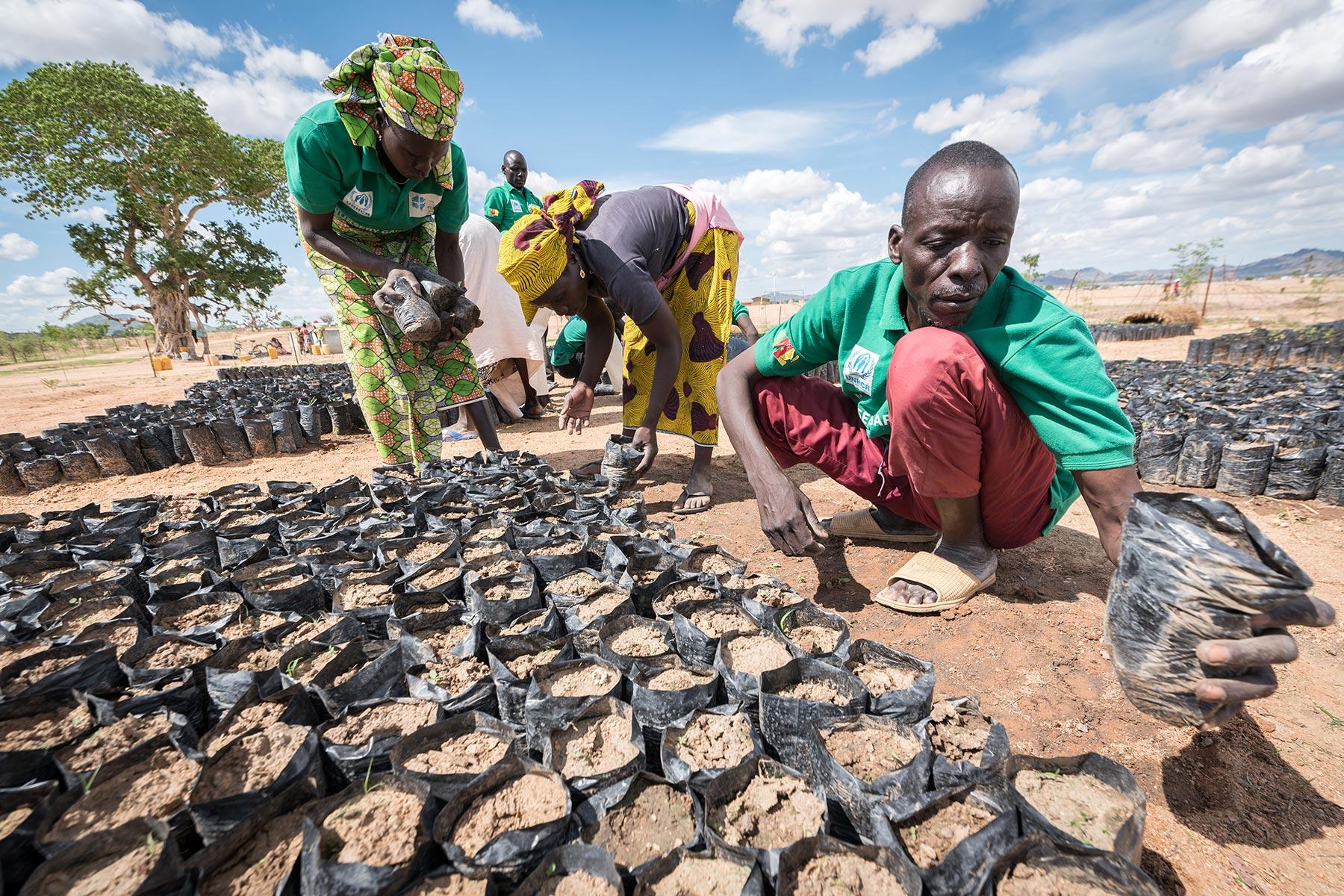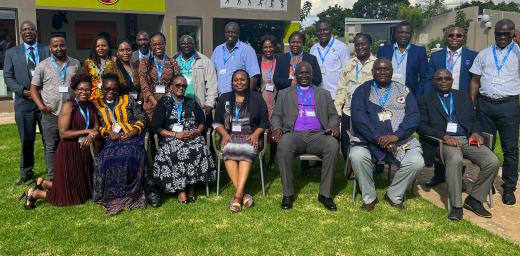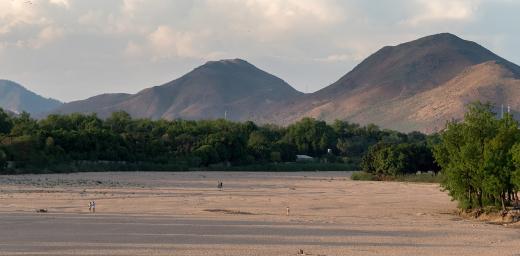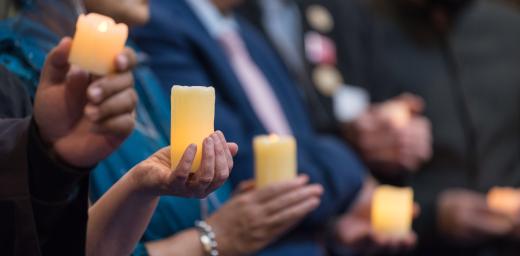Human Rights Council: LWF calls for Special Rapporteur on human rights and climate change

A group of nursery gardeners, themselves Nigerian refugees, work in a tree nursery in the Minawao camp for Nigerian refugees in Cameroon in 2019. Planted across 20 so-called âgreen spacesâ, a five-year planting and harvest cycle provides firewood, vines for building roofs, and a step in alleviating environmental impact in and around Minawao. The refugees are supported by the LWF, together with a range of partners. Photo: LWF/Albin Hillert
Strengthening an international response to climate change in compliance with human rights
(LWI) – As part of the Geneva Interfaith Forum on Climate Change, Environment and Human Rights (GIF), The Lutheran World Federation (LWF) has called on the United Nations Human Rights Council (HRC) to establish a Special Rapporteur mandate on human rights and climate change.
A Special Rapporteur would, among other things, identify the adverse impacts of climate change on peoples’ rights and dignity, consult affected communities, and contribute to strengthening an international ethical response to climate change in compliance with human rights.
Alexandra Masako Goossens-Ishii, Program Coordinator for Sustainable Development at Soka Gakkai, presented the statement to the Human Rights Council on behalf of GIF on 15 September.
“Climate change, directly and indirectly, affects the full and effective enjoyment of human rights,” said Elena Cedillo, LWF’s Program Executive for Climate Justice. The latest IPCC report reaffirmed the catastrophic effects of global warming.
“If the global rise in temperature is not limited to 1.5°C, we face irreversible changes in the ecosystems, human health, and well-being," Cedillo said. “The Human Rights Council urgently needs to address the climate crisis in a more permanent, comprehensive, and sustained manner.”
Statement on the establishment of a Special Rapporteur mandate on human rights and climate change and global recognition of the right to a healthy environment
On behalf of the Geneva Interfaith Forum on Climate Change, Environment and Human Rights (GIF), we thank the High Commissioner for her oral update highlighting the increased severity of the climate crisis and the need to put human rights at the center of climate action.
The latest IPCC report is clearly showing that: “Recent changes in the climate are widespread, rapid, and intensifying, and unprecedented in thousands of years”. This increasingly puts the right to a dignified life particularly for those in vulnerable situations at risk.
Since 2010, the GIF has advocated for the establishment of a Special Rapporteur on human rights and climate change. We believe that this mandate should be established at this 48th session, to, among other things, identify the adverse impacts of climate change on peoples’ rights and dignity, consult affected communities, and contribute to strengthen an international ethical response to climate change in compliance with human rights.
In this regard, we look forward to the engagement of States in further discussions pursuant to OP15 of the Resolution on Human Rights and Climate Change (A/HRC/47/L.19) during this session.
We also strongly believe that the time is now for the global recognition of the right to a safe, clean, healthy and sustainable environment. It is time for the Human Rights Council to take action.
By LWF/A. Weyermüller
The 48th Regular Session of the UN Human Rights Council takes place from 13 September to 8 October 2021. LWF participates in its sessions through statements, side events, and other activities. This is an integral part of LWF’s advocacy work.





